Can You Eat Bread on the Mediterranean Diet?
By Mediterranean Living
Updated January 13, 2023
There are a lot of reasons to love the Mediterranean diet. It’s healthy—good for weight loss, known as ‘heart healthy’, keeps diabetes at bay, and more.
Also, it’s not just a diet; it’s a lifestyle—a meal with your loved ones, a glass of wine a day, and a walk in the park.
Besides, there’s nothing you can’t eat on the Mediterranean diet—meat and sweets, too, as long consumed in moderation.
Nor is bread off the menu. However, it should be the right kind and fresh! You can have it all on the Mediterranean diet, which is why it’s loved and recognized so much.
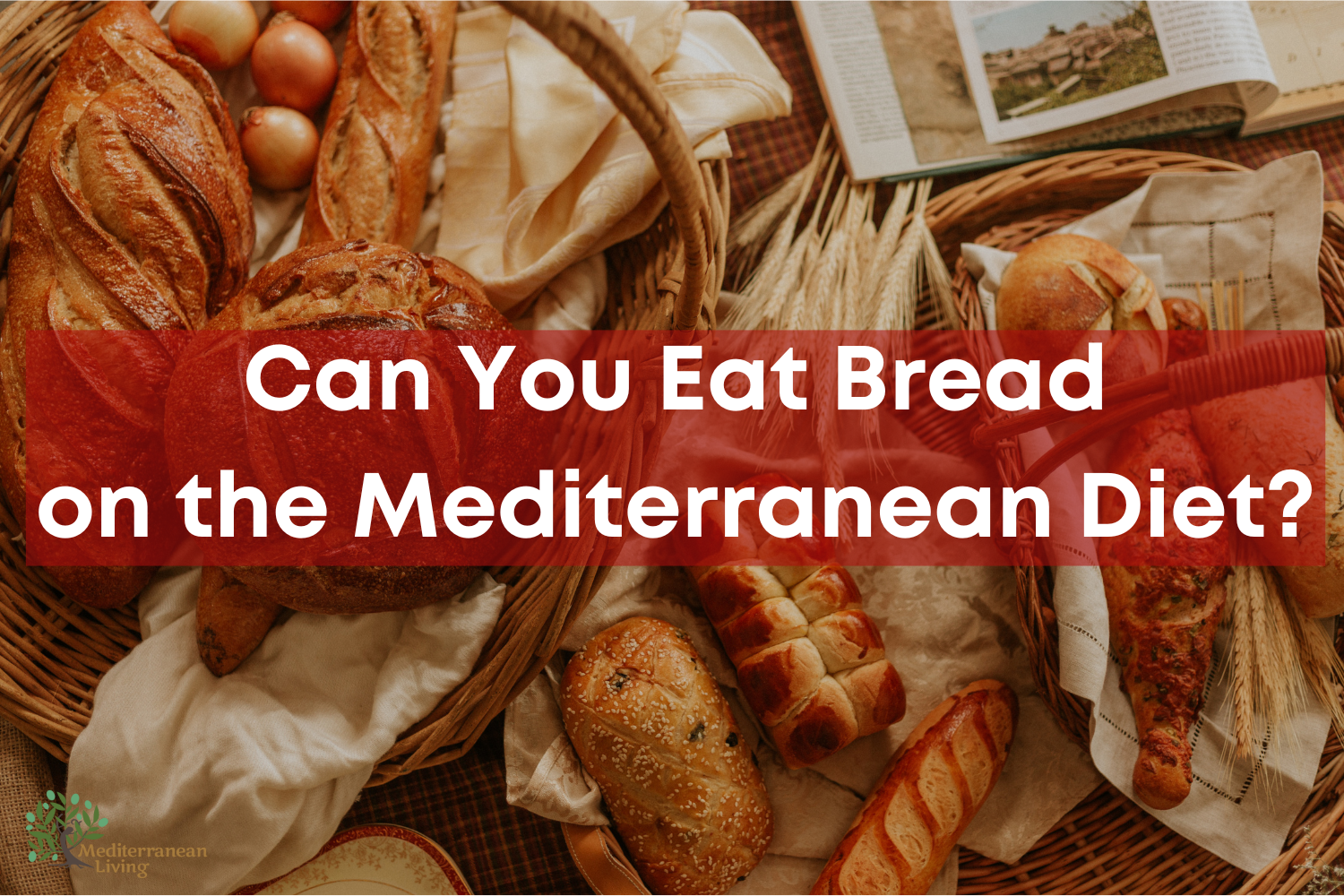
Consider these facts:
- In January 2023, US News & World Report ranked the Mediterranean diet No. 1 in multiple categories for the sixth time.
- UNESCO has recognized the Mediterranean diet as a cultural heritage.
Is it okay to eat bread on the Mediterranean diet?
Bread is low in essential nutrients such as fiber, protein, vitamins and minerals when compared to other foods such as fruits and vegetables.
And so, it’s a common misconception that bread is a no-no in the Mediterranean diet.
But in fact, bread is a traditional part of the Mediterranean diet.
After all, bread provides carbohydrates, which do fit in a healthy diet—it’s the body’s main source of energy. And it should make up 45% to 65% of our total daily calories.
That said, you have to be picky about the type of bread you eat.
Bread made of whole wheat, whole grains, sprouts, and sourdough is recommended, as it’s the healthiest type of bread.

White bread made of refined flour is best avoided. That’s because processing reduces the nutritional value of refined flour.
Whole wheat alternatives will keep your stomach fuller for longer as it contains fiber that helps slow down digestion—a process that also helps maintain blood sugar control.
Moreover, whole grains also provide vitamins such as B vitamins, magnesium, zinc, copper, iron, antioxidants, etc. that are essential nutrients for the body.
In short, every type of bread is not bad—we just need to know the right kind of bread to include in the Mediterranean diet. So let’s find out which ones are.
Types of bread suitable for the Mediterranean diet

As mentioned above, bread made from whole grain is most recommended for the Mediterranean diet. But what are the different types of whole grain bread, and why is it okay to include them in the diet?
- Whole grain: There’s a lot of research that shows using whole grains improves health in many ways, as it is less processed and contains high-quality sources of carbohydrates. Bread made from whole grains such as buckwheat, rye, oats, flax, millet, barley, etc., is suitable for the Mediterranean diet.
- 100% whole wheat: For bread to be nutritionally high, whole wheat bread is not good enough—it has to be 100% whole wheat. 100% whole wheat bread is made of wheat flour containing the entire kernel, including the bran and germ. The intact kernel makes the bread more nutritious.
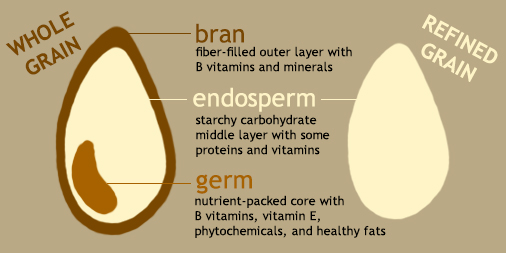
Image: Source
- Sourdough: Choose whole wheat sourdough bread for the nutritional value it offers. Low GI whole wheat sourdough bread helps reduce the calories you consume.
- Sprouted grain bread: Sprouted grain bread is made of grains that have begun to sprout. This bread is high in fiber and nutrients such as beta-carotene and vitamins C and E. Moreover, when made of grains and legumes, it contains essential amino acids and protein.
Now we know the good types of bread and what they provide to our body. Meanwhile, let’s also delve into what gives white bread a bad reputation in comparison to whole wheat bread.
White bread vs. whole wheat bread: the science behind why the latter is better

Is there a difference between whole wheat bread and white bread?
White bread and whole wheat bread are made from the same grain – wheat. The difference between these two types of bread is due to the difference between the processings of whole grain and refined grain.
As seen in the image, whole grains have three parts: endosperm, bran, and germ.
During the process of making white bread, bran and germ are removed from the grain, leaving only the endosperm. Whole grain products have all three.
So, why are the bran and germ removed?
- Germ removal extends the shelf life of the product.
- Bran removal gives a white color and a fluffy texture.
- Refined grains cook faster than whole grains.
Now let’s understand how the three parts of the grain contribute to our body.
Endosperm: These are primarily carbohydrates. Our body breaks down carbohydrates into glucose during the process of digestion. Glucose is sugar. It gets absorbed into our bloodstream and is an important energy source for our cells and organs.
Germ: Germ contains nutrients such as vitamin E, protein, magnesium, fiber, and more.
Bran: Bran is a source of a significant amount of proteins, vitamins, fiber, and minerals.
Bran and germ are rich in fiber. One type of fiber is insoluble, which does not dissolve in water. It helps bulk food and moves it easily through the digestive system, reducing constipation.
The other type is soluble, which dissolves in water and slows the movement of food through the digestive system. As the breakdown of glucose is slower, it takes longer for it to enter the bloodstream. This helps manage and stabilize our blood sugar and cholesterol levels.
Coming back to refined grain white bread, it lacks bran and germ, and therefore, all the fiber and benefits to our digestive system, blood sugar, and cholesterol.
In comparison, having only whole grain bread is good for our body and provides many benefits.
Benefits of whole grain bread

A healthy balance of quality and quantity of whole grain bread in your Mediterranean diet can benefit you in many ways. Here are some of its benefits:
Reduce heart disease risk
Studies show that apart from the quantity of carbohydrates, its quality, too, significantly impacts cardiovascular health. A higher proportion of carbohydrates from whole grains is inversely associated with cardiovascular diseases.
Reduce obesity
Whole grain bread contains more fiber and nutrients and is more filling. It increases the feeling of fullness, preventing overeating, and therefore, reduces the risk of obesity.
Lower diabetes risk
Intake of whole grains is associated with improved insulin sensitivity, thus reducing the risk of diabetes—fiber slows down digestion and controls blood sugar rise.
Provides fiber
According to The American Heart Association, a slice of 100% whole grain bread can provide 3 grams of fiber—12% of the daily recommended intake of 25 grams. Fiber helps stabilize blood sugar, reduces the risk of diabetes and cardiovascular diseases, and plays a crucial role in weight loss.
Aids gut health
Fiber from whole grains helps feed gut bacteria called microbiota, supporting healthy digestion. Also, it helps lower constipation.
Now we know, not all types of bread are bad for our body. The right kinds of bread provide many benefits and are required in our diet. But there are some factors to consider when choosing bread for the Mediterranean diet.
Tips for choosing good bread on the Mediterranean Diet

Choosing bread simply by how it looks, smells, or the store/bakery you buy it from, isn’t enough. These are a few factors to consider to ensure you pick the right bread:
- Choose whole grain bread over white bread
- Choose sourdough
Read the nutritional label before buying a bread - It should be made of 100% whole grain or 100% whole wheat
- Keep away from soy bread as soya can be processed, and too much soy should be avoided
- Fresh bread, preferably baked a couple of hours before eating
The takeaway
While bread has garnered a bad reputation due to modern-day processed foods, it isn’t all that bad. In fact, suitable types of bread made with whole grains have many benefits for the body and are good to eat on the Mediterranean diet.
Moreover, many varieties of whole grain bread are available at your local bakeries. Better still, bake your bread at home.
The best part about the Mediterranean diet is nothing is off limits, and you can change your diet one step at a time.








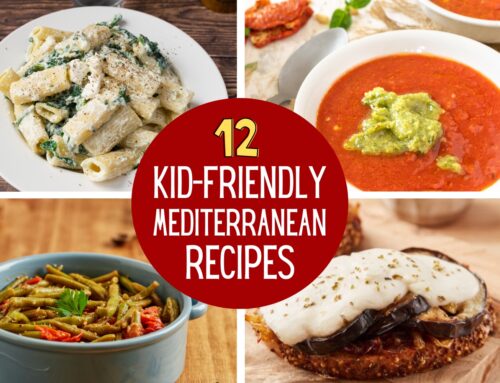
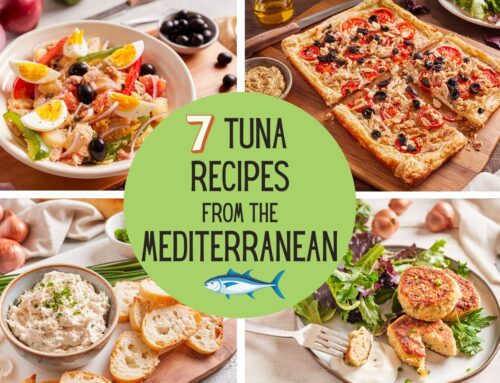
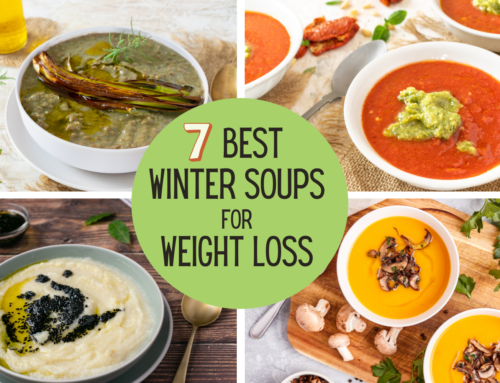

The bread is one of the best way to reduce your body fat if you take in normal amount. Thanks for the information on this topic. Subscribed your blog.
a Mediterranean diet has always had bread, it is the biggest staple and it has white flour, grain and whatever you could get because you ate what you could find, and sometimes you got nothing. If there is no bread then don’t call this a Mediterranean diet, it’s just made up!!
Thank you for your insights and recipes regarding healthful eating. Do you have any appropriate recipes for baking Mediterranean style whole grain bread? I would like to try baking my own bread at home.
Thank you for your consideration in this matter.
Susan Tobias